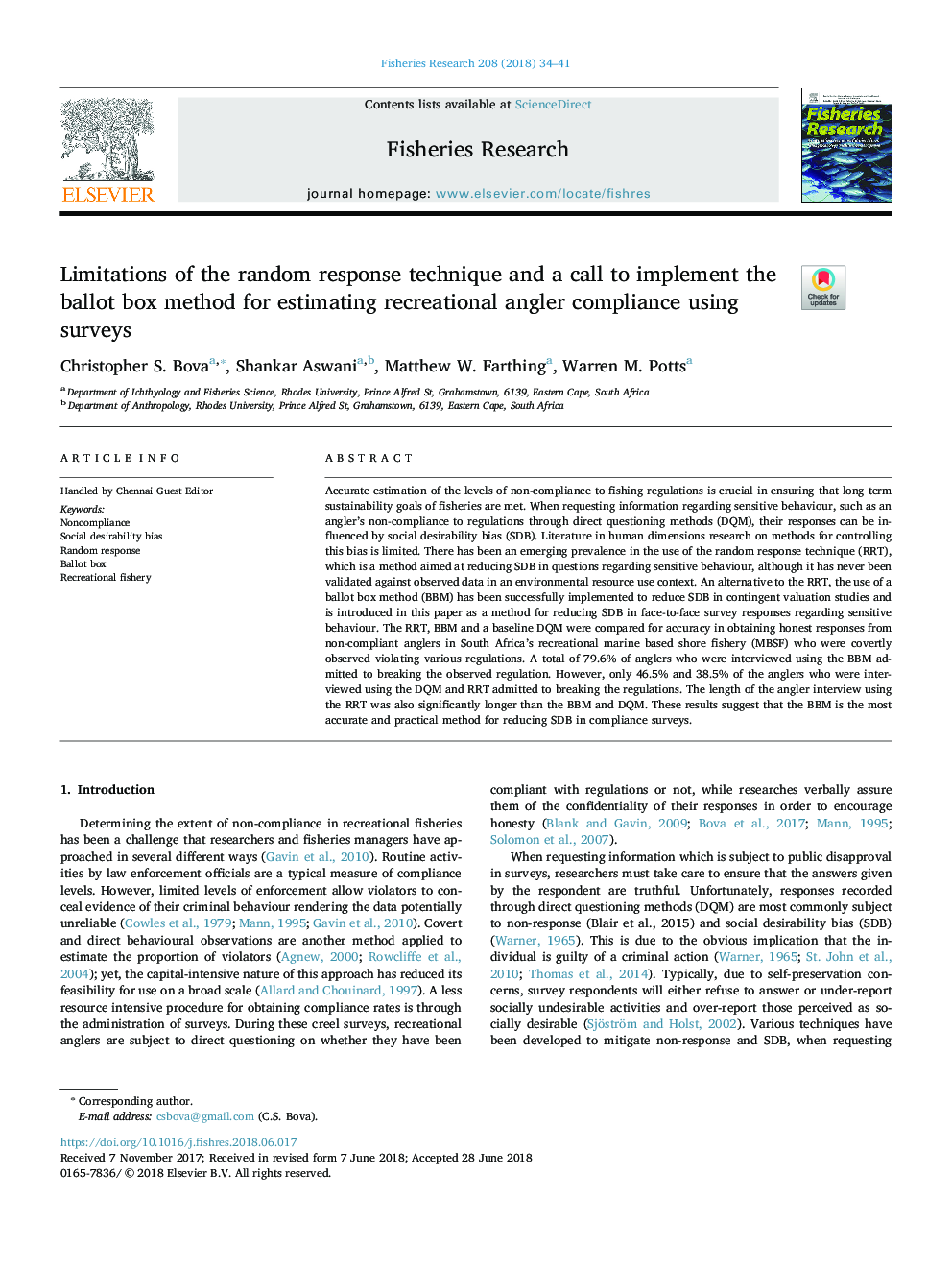| کد مقاله | کد نشریه | سال انتشار | مقاله انگلیسی | نسخه تمام متن |
|---|---|---|---|---|
| 11033174 | 1626762 | 2018 | 8 صفحه PDF | دانلود رایگان |
عنوان انگلیسی مقاله ISI
Limitations of the random response technique and a call to implement the ballot box method for estimating recreational angler compliance using surveys
ترجمه فارسی عنوان
محدودیت های تکنیک پاسخ تصادفی و یک تماس برای پیاده سازی روش جعبه رأی گیری برای برآورد انطباق پذیرش تفریحی با استفاده از نظرسنجی
دانلود مقاله + سفارش ترجمه
دانلود مقاله ISI انگلیسی
رایگان برای ایرانیان
کلمات کلیدی
عدم انطباق، تعصب مطلوب اجتماعی، پاسخ تصادفی، جعبه رای، ماهیگیری تفریحی،
موضوعات مرتبط
علوم زیستی و بیوفناوری
علوم کشاورزی و بیولوژیک
علوم آبزیان
چکیده انگلیسی
Accurate estimation of the levels of non-compliance to fishing regulations is crucial in ensuring that long term sustainability goals of fisheries are met. When requesting information regarding sensitive behaviour, such as an angler's non-compliance to regulations through direct questioning methods (DQM), their responses can be influenced by social desirability bias (SDB). Literature in human dimensions research on methods for controlling this bias is limited. There has been an emerging prevalence in the use of the random response technique (RRT), which is a method aimed at reducing SDB in questions regarding sensitive behaviour, although it has never been validated against observed data in an environmental resource use context. An alternative to the RRT, the use of a ballot box method (BBM) has been successfully implemented to reduce SDB in contingent valuation studies and is introduced in this paper as a method for reducing SDB in face-to-face survey responses regarding sensitive behaviour. The RRT, BBM and a baseline DQM were compared for accuracy in obtaining honest responses from non-compliant anglers in South Africa's recreational marine based shore fishery (MBSF) who were covertly observed violating various regulations. A total of 79.6% of anglers who were interviewed using the BBM admitted to breaking the observed regulation. However, only 46.5% and 38.5% of the anglers who were interviewed using the DQM and RRT admitted to breaking the regulations. The length of the angler interview using the RRT was also significantly longer than the BBM and DQM. These results suggest that the BBM is the most accurate and practical method for reducing SDB in compliance surveys.
ناشر
Database: Elsevier - ScienceDirect (ساینس دایرکت)
Journal: Fisheries Research - Volume 208, December 2018, Pages 34-41
Journal: Fisheries Research - Volume 208, December 2018, Pages 34-41
نویسندگان
Christopher S. Bova, Shankar Aswani, Matthew W. Farthing, Warren M. Potts,
